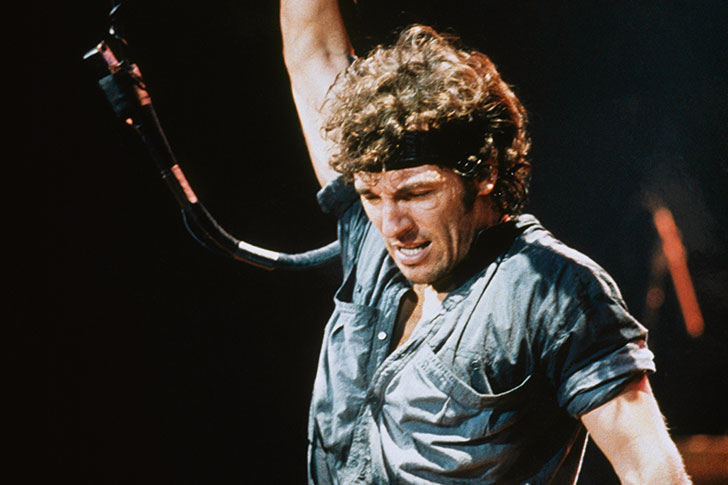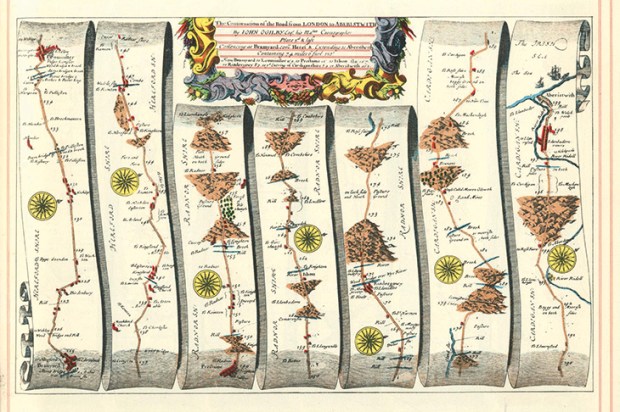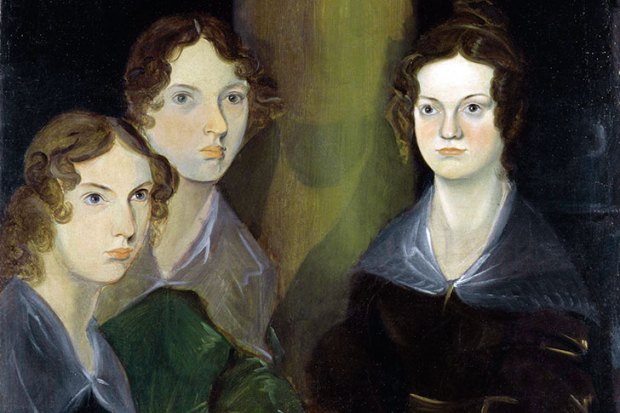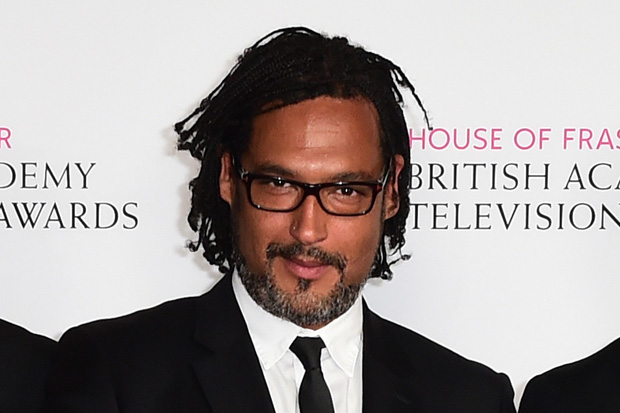‘John, we need your autobiography.’ ‘I thought I’d express my life experience in song.’ ‘That’ll be fine.’ This would be an odd agreement, and one the world would (rightly) be less than thankful for. But though not everyone plays music, we all have a relationship with prose. And recent years have seen a trend in rock memoirs away from the traditional ‘as told to’ (the method responsible for the footballer’s hagiography that often, in Martin Amis’s phrase, ‘runs the full gamut of human emotions from “gutted” to “chuffed”’) and towards autobiography proper: books written by the artists.
That can be a problem. The ability to play the guitar like ringing a bell does not vouchsafe your ability to construct a prose edifice that will beguile for 500 pages. This thought has crossed my mind several times in the past year, as I’ve sweated through huge books from the likes of Elvis Costello, Robbie Robertson and Johnny Marr.
Of course the alpha work here, the black obelisk in whose shadow everyone else is still banging bones, is Chronicles. The repercussions of Dylan’s autobiography were seismic and, in various ways, everyone else is still playing catch-up. There are reasons for this. In Chronicles you saw Dylan simply being Dylan. Not to oversimplify, but — in the same way that memoirs like Nabokov’s Speak, Memory or Updike’s Self-Consciousness are completely revealing while remaining utterly oblique — Chronicles wasn’t a book about Bob Dylan. It was a Bob Dylan book, every phrase stamped with its maker’s hallmark. The autobiographies by musicians that truly work — Patti Smith’s Just Kids; the first 100 or so pages of Morrissey’s Autobiography — are very much in this vein.
The problem with Born to Run, then, is one of tone: its creator’s voice just does not register as convincingly on the page as it does in his music. I am a longtime Springsteen fan who couldn’t wait for this book to arrive. I cleared a whole afternoon to curl up with it. But after a while I found myself making another cup of tea. Twiddling the radio dial. Checking my emails…
When something like ‘Blinded by the Light’ bustles and jitters and Springsteen sings ‘Go-Cart Mozart was checkin’ out the weather chart to see if it was safe to go outside/ And little Early-Pearly came by in her curly-wurly and asked me if I needed a ride,’ your blood leaps. When Springsteen writes flatly on the page, ‘in the heart-stopping, pants-dropping, race-riot-creating, oddball-hating, soul-shaking, love-and-fear-making, heartbreaking town of Freehold New Jersey’ or, just a few pages later, ‘it’s a life-giving, joyful, sweat-drenching, muscle-aching, voice-blowing, mind-clearing, exhausting, soul-invigorating, cathartic pleasure every night’, your blood leaps again, but this time towards your face and armpits in the hot flush of embarrassment.
Springsteen does engage, and bravely, with the depression that has blighted him for years. Unfortunately this means that the book is littered, clunkingly, with the tropes of therapy-speak. We get, for instance, the fluid pulse of ‘for the rest of my life I would struggle to create boundaries for myself that would allow me a life of some normalcy in my relationships’. Throw sentences like that in between the hyphenated passages of bum-shaking-earth-quaking-bear-baiting stuff and the cumulative effect is akin to listening to someone alternately trying to goad a stadium into life and talking to their shrink.
And you wonder — was there no one with a blue pencil within 100 yards of the manuscript? You begin to pine for the days of ‘as told to’ — which has, after all, yielded gems such as Keith Richards’s Life and, more recently, the ex-Sex Pistol Steve Jones’s Lonely Boy.
There might be an interesting study to be done on the perils of editors working with rock stars. Think of the truly jaw-dropping, pants-soiling, armpit-scorching (TM B. Springsteen) necropolis of prose that was Morrissey’s novel List of the Lost, and the screams of ‘Where was the editor?’ that greeted its publication. It is difficult, of course. What young editor, the massive fan who inked the fat deal, is going to look Springsteen — or Morrissey, or Elvis Costello — in the eye and say the things editors need to say to people who are new to working in long-form prose?
But until somebody does, the experience of reading brilliant musicians attempting to extend their talents onto the page is likely to remain what it so often is now: watching hugely talented people thrashing about in the wrong medium. Watching dolphins flopping on to the beach and trying to swim through sand.
Got something to add? Join the discussion and comment below.
Get 10 issues for just $10
Subscribe to The Spectator Australia today for the next 10 magazine issues, plus full online access, for just $10.
You might disagree with half of it, but you’ll enjoy reading all of it. Try your first month for free, then just $2 a week for the remainder of your first year.














Comments
Don't miss out
Join the conversation with other Spectator Australia readers. Subscribe to leave a comment.
SUBSCRIBEAlready a subscriber? Log in